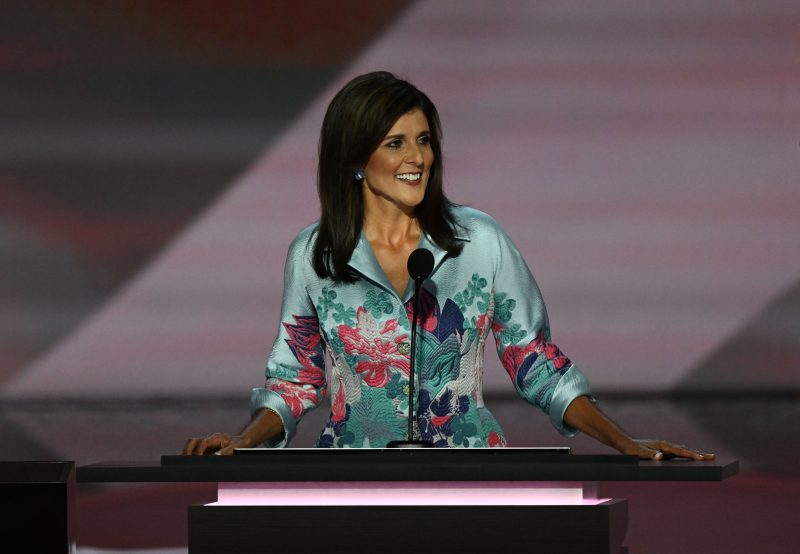In a significant political move that has reverberated across the American political landscape, former United Nations ambassador Nikki Haley has recently made a candid statement expressing support for former President Donald Trump and emphasizing the importance of a unified GOP to safeguard the country’s well-being. This declaration comes at a pivotal juncture in a deeply polarized and tense political arena, where the Republican Party is grappling with issues of identity and leadership in the post-Trump era.
Haley’s decision to align herself with Trump, a dominant and contentious figure within the party, stands out as a strategic positioning to galvanize support from the conservative base and potentially enhance her stature for future political ambitions. By embracing Trump and emphasizing the necessity of a unified GOP, Haley is subtly positioning herself as a unifying figure capable of bridging the differing factions within the party and steering it towards a common purpose.
The appeal for a unified GOP is not merely a political maneuver but a recognition of the significant challenges facing the country at this critical juncture. Haley, known for her diplomatic acumen and pragmatic approach to problem-solving, is leveraging her credibility within the party to stress the importance of setting aside internal divisions and focusing on the broader goal of preserving the nation’s core values and interests.
Moreover, by aligning herself with Trump, Haley is also tapping into a powerful network of supporters and donors who remain loyal to the former president. Trump’s influence within the GOP, despite the controversies surrounding his presidency, cannot be underestimated, and Haley’s decision to embrace him reflects a shrewd understanding of the political landscape and the dynamics at play within the party.
However, Haley’s alignment with Trump has also generated criticism and raised questions about her ideological consistency and principles. As a prominent figure within the conservative movement, Haley’s association with Trump could potentially alienate some moderate and establishment Republicans who remain wary of the former president’s combative style and unorthodox approach to governance.
In essence, Haley’s embrace of Trump and her call for a unified GOP underscore the complex dynamics at play within the Republican Party as it navigates through a post-Trump era. The party’s ability to reconcile its ideological differences, rally around a common vision, and present a coherent message to the American electorate will be crucial in shaping its future trajectory and influence on the national stage.
Ultimately, Haley’s strategic maneuvering and calculated alignment with Trump highlight the intricate balancing act required in contemporary American politics, where individual ambitions, ideological considerations, and strategic calculations converge to shape the destiny of political parties and the country at large. Whether Haley’s gamble pays off in the long run remains to be seen, but her willingness to embrace the challenges and seize the opportunities presented by the current political landscape showcases her as a formidable player in the ever-evolving American political arena.


























